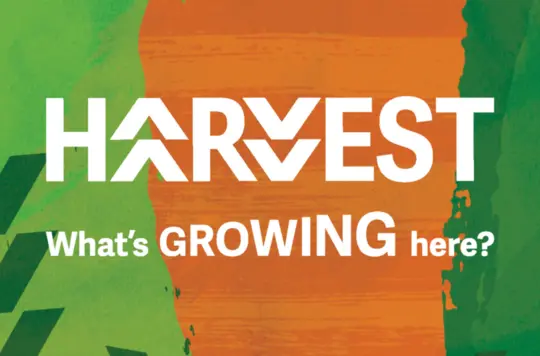21 September 2024
A time of thanksgiving
Major Paul Hilditch
Major Paul Hilditch highlights God’s grace to us.
Key text
Harvest Festival is an annual treat when the smell of the greengrocer comes to The Salvation Army. When I started to read the Bible, I realised that for ancient Israel, as well as for Jewish people today, there are three Harvest celebrations. These celebrations have developed into Passover and Unleavened Bread in spring, Pentecost in summer and then Tabernacles in autumn. If you think that one Harvest Festival per year is not enough, try to fit in three!
We know that each festival is a moment to consider the grace of God in releasing the Israelites from slavery in Egypt through to their arrival in the Promised Land. Before reading our three study passages, note that there are at least 600 years between the writing of Exodus and Leviticus and the writing of Luke. These biblical festivals have continued to develop over the subsequent centuries.
Our study passage from Exodus deals with the three festivals, while the passage from Leviticus focuses on the spring festival of Passover and Unleavened Bread. The passage from Luke is about the Last Supper, declared to be a Seder (a Passover supper) in the first three Gospels.
Each festival was a pilgrimage festival when the men of Israel were required to gather at the Temple. On many occasions, such gatherings included women and children, for example see Luke 2:41 and 42. Not all families could make the journey for each festival and, as Jewish people moved further from Jerusalem, it was not always practical to make the journey. As a result, home-based customs developed that would have included the kind of celebration recorded in Luke 22.
Anyone who has ever catered for a family gathering will know that each of these passages disguises the background work. Add together Temple ritual, home-based celebrations, along with travel and accommodation requirements. It would have been a very busy time.
Pause and reflect
- In what ways can our busy times of celebration also be moments for acknowledging the Lord’s grace in our lives, our families and our communities?
The Exodus verses teach us lots of lessons in few words. Take time to read them and see what you notice. Here’s my list:
First, there is a pattern to the year and things happen at set times. This routine provides us with order out of what may otherwise be chaos (see v14).
Second, there are anniversaries of important events that are worth noting (see v15). For me there is now a year, which is poignant and useful in this time of loss. This verse also contains the command to not come before God empty-handed. We need to bring our whole selves before God for him to sanctify the offering.
Third, the first fruits of the harvest are to be presented to God, therefore we need to prioritise God in our thinking and doing; bringing to him the best, not the leftovers (see v16).
Fourth, worshipping within the faith community is a spiritual discipline to be relished (see v17). Soldiers in The Salvation Army commit to be responsive to the Holy Spirit in the more obvious disciplines of Bible reading and prayer, as well as service, while our worship completes the list as a vital activity for our spiritual wellbeing.
Pause and reflect
- Read Exodus 23:14–17.
- What does it say to you today?
Consider the details in Luke 22:7–38. What do you notice about this Passover meal and the new teaching that Jesus brings to his gathered disciples?
It was a great privilege for me to be invited to a Seder with a local Jewish family. The mother is a rabbi in Reform Judaism, the father is Orthodox Jewish, and we met together with other Jewish guests and other Christians. We gathered in time to welcome the Sabbath early on Friday evening and then progressed to the meal itself. The ritual around the meal was entirely in Hebrew, the meal was enormous, and we got home in the early hours of the morning from an event that combined the need for stamina and appetite, and included strong moments of worship, laughter and much more.
What is recorded in Luke is sombre. It centres on Christ’s teaching about his betrayal, suffering and death, along with other intense teaching for the disciples. Presumably, Luke leaves out some of the other moments. He certainly doesn’t talk about the preparation in any detail, although a man carrying a water jar must have at least raised eyebrows in a society where this was a woman’s role.
It’s Harvest weekend sometime around now in most corps, with some decorations and a few sneezes. It may be that we reserve this passage from Luke for the days around our more obvious spring festivals marking the death and resurrection of Jesus.
Pause and reflect
- Consider this passage from Luke and how it impacts you at this time of the year.
- How do you continually recall the life, suffering, death and resurrection of Jesus in your day-to-day routine?
The central event in the Last Supper for all Christians, including Salvationists, is usually considered to be the moment when Jesus takes bread and wine and gives it a new meaning for then and now. Although Salvationists do not have a formal celebration of the Eucharist, we still acknowledge the importance of eating and drinking in worship.
Pause and reflect
- If planning a Harvest supper, consider how you can make it as worshipful as possible.
- How might you make weekly refreshments before or after the meeting a part of your worship?
- Consider how meals at home can be more filled with worship.
Bible study by

Major Paul Hilditch
Degree Course Leader, William Booth College
Discover more

Major Lynne Shaw finds out how Hadleigh Farm is building relationships with the community.

Major Nigel Bovey gleans insights from a harvesting story.


